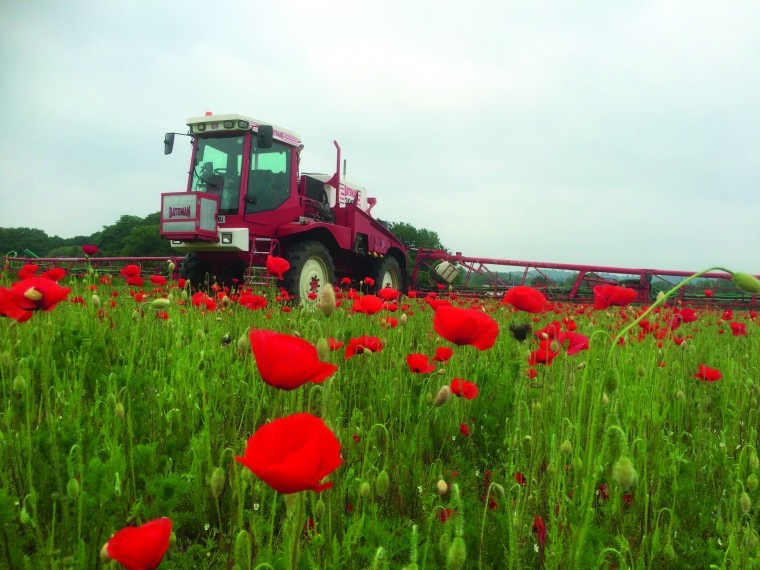Peter Knight originally came to Burgate Farm after leaving college in 1982. He moved into management, and became a director of Burgate Farms Ltd, which is owned by Peter Rampton.
Today, Burgate Farm is 400 acres of arable crops and 200 acres of woodland. The business rents about 180 acres, does contract farming on 500 acres and is straight contracting on another 900 acres, giving about 2,000 acres in total.
The business is all arable with no livestock, but there is a good mix of crops. Fodder beet is grown as a cash crop. Other crops are wheat, oats, rye, winter beans and oilseed rape as winter crops and spring barley, spring beans, and some peas. “The area of rape has gone up and down over the years as we’ve suffered with pigeon and establishment problems, and beans have probably increased,” Mr Knight said. “We had three good years on spring beans until this year which has been a disaster because of the hot weather. My view is that if the temperature is above 25 centigrade for three or four consecutive days, the flowers won’t set and you end up with two or three pods per plant rather than six or seven.”
Most of the winter crops were fine during the heat, but the rape was down by about half a tonne a hectare.” We had that cold snap late in the spring and it remained quite wet for a long time, so when the rape eventually did go into flower, we flipped from it being cold and wet to hot and dry. The flowering period was very short and that had an effect on the plant because the depth of pod was less than we would sometimes expect. But rape is notoriously unpredictable in what it is going to yield – you never know until you combine it.”
Spring barley was a good tonne a hectare down on where it should have been. “It wasn’t a disaster. We were still doing five tonnes a hectare which is where we were five to ten years ago. But over the last few years, with modern spring barley varieties and the way which we have grown them, we have been up nearer seven tonnes a hectare. We are not on classic spring barley growing ground round here: it’s mostly quite heavy Weald Clay. But we are growing more spring crops now to help our grass weed control across the rotation.”
Most of the crops are traded through Gleadell Agriculture or Frontier Agriculture and end up in feed mills. “A mixture of group two, three and four wheats are grown and we take whatever premium is available, I became disillusioned with growing group ones and not consistently making milling specification.”




